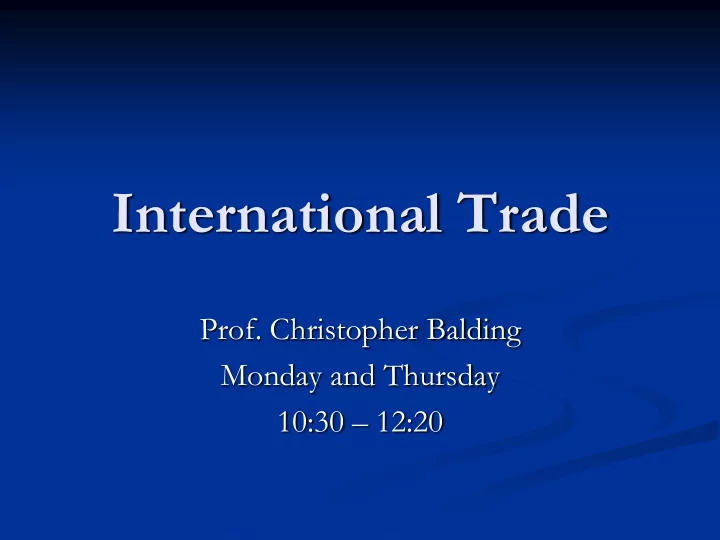

International Trade Prof. Christopher Balding Monday and Thursday 10:30 – 12:20
Baldingsworld.com/courses
Course Objectives Cover at an advanced level the foundations, theories, and empirical realities of modern international trade Deepen our understanding of all aspects of international trade including the microeconomic foundations, currency economics, and trade policy Improve analytical skills for career development
A New Direction Less straight international trade economics and more international business of trade The first 1/3 to ½ of the class will remain the same to provide you a sound foundation The second half of the class will focus more on the international business of trade What topics in international business and economics would you like to see?
Skills for this Class I assume everyone has a solid background in economics and has taken advanced macro and micro economics While there will be both theoretical and empirical use of math in this course, this is not an applied mathematics course. The most important skills acquisition is to improve your creative problem solving and analytical rigor not your math skills
What is Expected of Students You are expected to come to class and participate in the discussions and lectures You are expected to have completed the readings prior to every class session I expect you to come to class with questions about the readings This is not a class where I lecture for two hours everyday and you take notes
Grading Final Exam: 40% Final Paper: 40% Presentation and Participation: 20%
Readings for Monday Bernhofen, D. and J. Brown (2004), “A Direct Test of the Theory of Comparative Advantage: The Case of Japan” Journal of Political Economy , 112: 48-67. Rudiger Dornbusch, Stanley Fischer, & Paul Samuelson, “Comparative Advantage, Trade, and Payments in a Ricardian Model with a Continuum of Goods,” American Economic Review 67 (1977): 823-39.
Recommend
More recommend